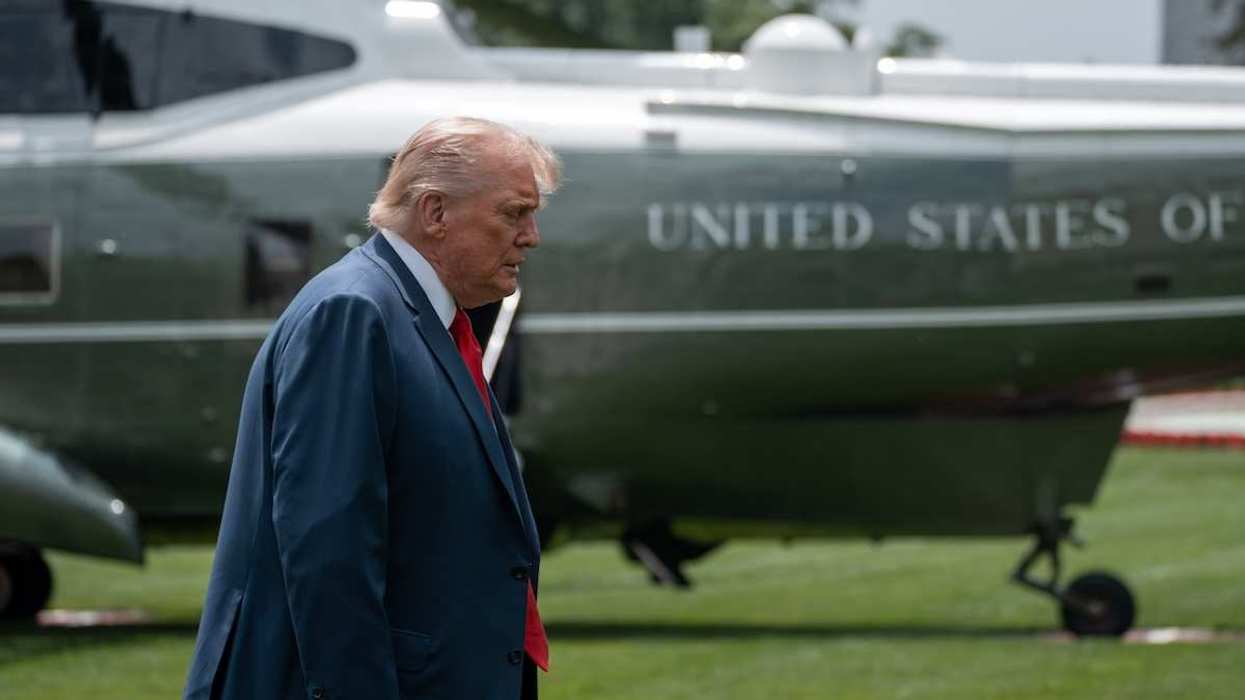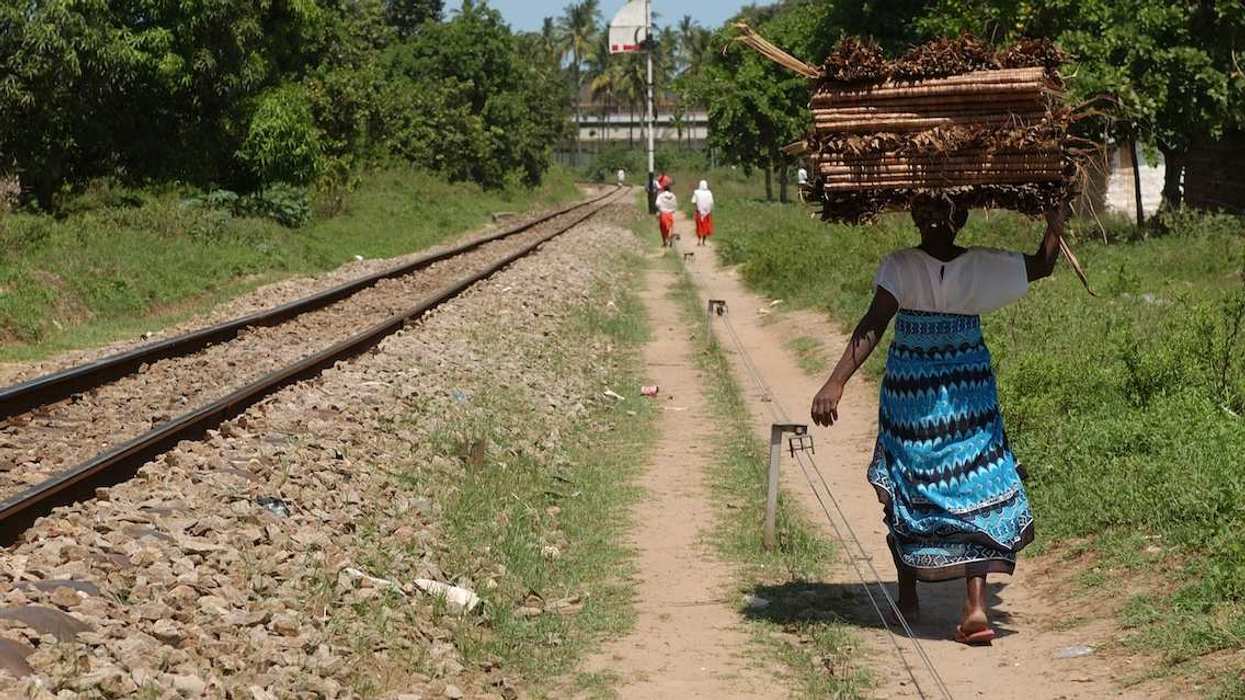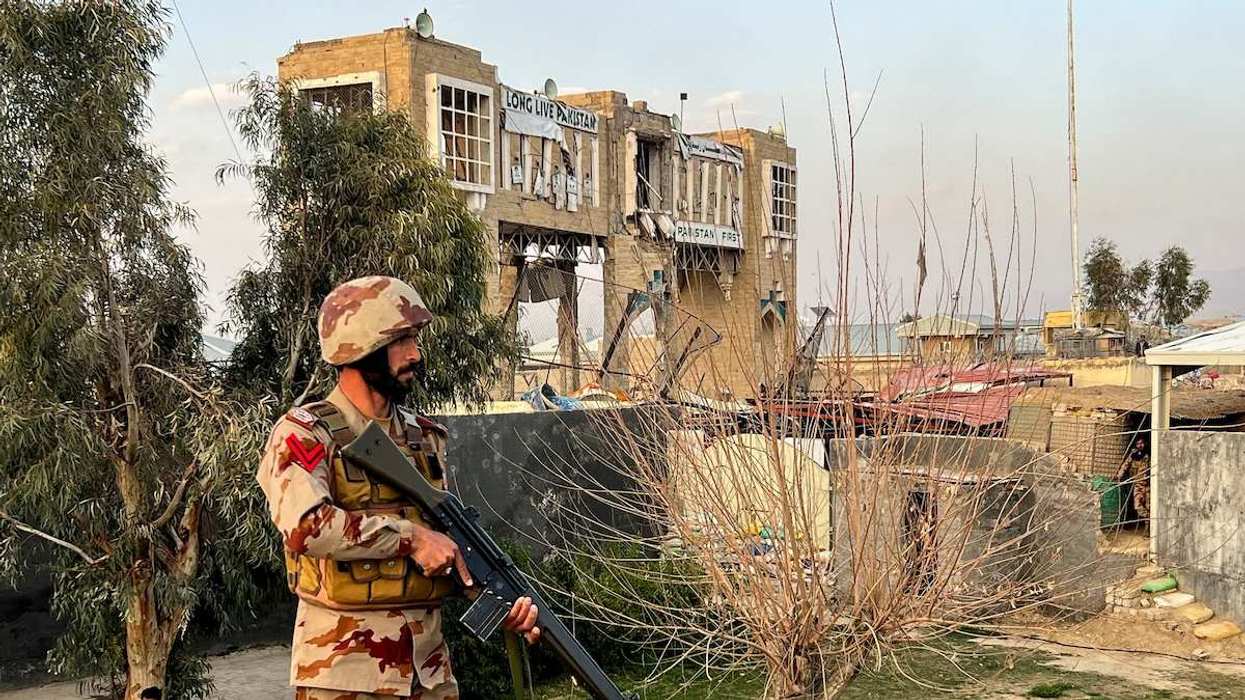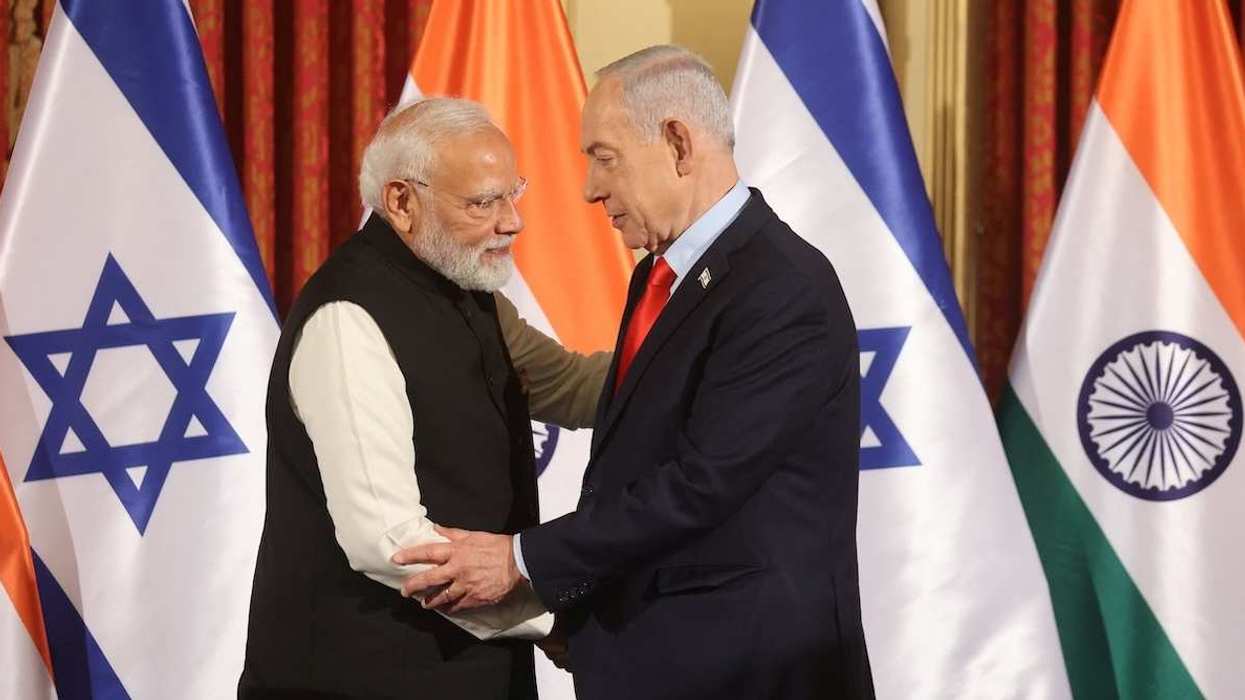In a forest outside of Kyiv, a small group of Ukrainian soldiers with machine guns pads around silently, listening intently and sniffing the tree trunks.
“If you walk past a tree and it smells like urine,” says Jay, 30, a stoutly built former special forces soldier from Denmark, “that’s because urine starts to release a gas roughly 15 minutes after someone pisses on the tree.”
Jay is giving combat training to the Ukrainian soldiers, and in this lesson, he is teaching them how to detect the presence of Russian troops and patrol frontline areas.
“I want to see you move slow, silent, deliberate,” he tells the men as they fan out among the leafless trees, practicing their patrols and doing evacuation exercises.
Jay, who asked us not to use his last name, is one of the thousands of foreigners fighting alongside the Ukrainians as part of the country’s International Legion. He has seen combat on every major front of the conflict since signing up last March, just days after Russia invaded.
Training sessions like these are among the most important contributions that foreigners are making to Ukraine’s war effort.
One reason that training is so important is that many of the Ukrainians now fighting had no combat experience at all before Kyiv called a general mobilization in response to Russia’s invasion.
“There are some incredible fighters here,” says Michael, 38, an American who co-founded Task Force 31, a non-profit that helps to train Ukrainian troops. “But a lot of the people that are absorbing a lot of this fight were bakers, dentists, doctors.”
Getting the right equipment is also a challenge. For all the headlines about Europe and the US giving the Ukrainians advanced weapons like Leopard tanks, HIMARS rocket systems, and perhaps, soon, even fighter jets, many units in Ukraine still suffer shortages of simpler things like basic training and equipment.
“The Western support is mostly big, heavy armor and artillery pieces,” says Jay. “This is very needed as well, but it doesn't necessarily help the guys on the ground who have to go buy their own boots and buy their own helmet.”
René, a 20-year international legion member from Germany, is part of the effort to rustle up basic gear. He was a bike messenger before the war, but after seeing a now-famous video of a Ukrainian refugee child crossing the Polish border with a bag full of toys, he decided to go fight for Kyiv.
Today he is a drone operator attached to a unit that has seen combat in the Donbas. But he also works to secure, maintain, and repair pickup trucks, which are crowdsourced from elsewhere in Europe, painted in camouflage, and sent to the front.
DIY efforts are commonplace in this war. “It's not only the military that is fighting,” says Rene, “it's also civilians that are doing volunteer work, employed in cars, painting cars, organizing humanitarian aid, helping the civilians at the frontline, helping the animals that got left behind at the frontline.”
Why is Ukraine still in need of such DIY efforts even after a year of war and tens of billions of dollars in support from the US and Europe?
The scale of the effort that’s required to fend off a much larger adversary is one reason.
“They're still fighting a country that spends ten times as much on its military as Ukrainians do,” says Liam Collins, a retired US Special Forces officer who has advised the Ukrainian Ministry of Defense. “So they're going to be behind even with a $100 billion investment by the U.S.”
Supply chain and distribution problems may also play a role, as Kyiv still struggles to apportion huge amounts of equipment to the right units at the right time.
There is also the specter of corruption. Despite improvements in recent years, Ukraine still ranks a lowly 116th out of 180 countries on Transparency International’s Corruption Perceptions Index.
And while there is so far no evidence of graft significantly affecting the provision of equipment, President Volodymyr Zelensky last month sacked senior defense officials implicated in the misappropriation of funds.
Meanwhile, on the ground, the work of guys like Jay, Michael, and René continues. If the money isn’t there, they raise it. If the training isn’t sufficient, they do it. If the trucks aren’t there, they find them.
“You don’t have to be shooting to be fighting,” says Jay. “When we train other people, they then pass that knowledge on to their friends. And that way we can make a big impact in this war.”
Michael Tucker contributed reporting to this piece from Ukraine.



















